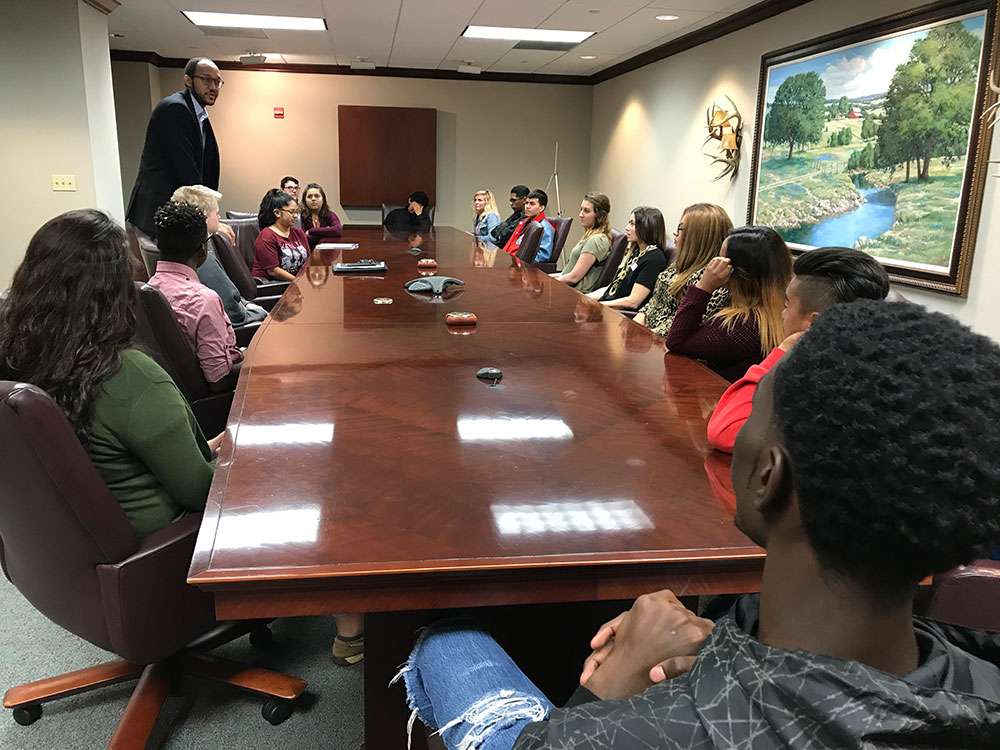
A solace in schools
How a Texas nonprofit is addressing youth mental health challenges
Warning: This article contains references to suicide.
Across the country, young people are experiencing a mental health crisis. In 2021, 42% of students felt persistently sad or hopeless, and nearly one-third experienced poor mental health, according to the Centers for Disease Control (CDC). One in five seriously considered attempting suicide. While these numbers are distressing themselves, experts know that poor mental health in young people may lead to increased risk of drug use, experiencing violence and unintended pregnancy.
But for students in Fort Worth, Texas, there is hope, thanks to the efforts of the nonprofit Communities In Schools of Greater Tarrant County (CISGTC).
Building strong bonds and connecting to youth can protect their mental health, the CDC report notes. Schools in particular can create protective relationships with students and help them grow into healthy adults. CISGTC understood this evolving need and launched its mental health program in 2019.
"They pivoted a few years ago," said Bryson Bowden, CISGTC board member, volunteer and Bank of Texas corporate banker. "Instead of focusing solely on case management and social work, CISGTC adapted to the modern issues of children, which are increasingly tied to mental health."
The organization’s Mental Health Supports program addresses the mental health needs of students through one-on-one counseling by licensed clinicians on school campuses. Uniquely, the program provides individual counseling sessions inside a student's school, thus eliminating any transportation or distance barrier that may exist. Currently, 12 mental health counselors provide clinical services to over 300 students across five school districts per year.
Making an impact one relationship at a time
Social workers are stationed onsite at schools and empowered to help students in whatever way is most helpful. "Staff will remove whatever barrier is in the student's life," said longtime CISGTC volunteer and former board president, Roy Johnson, who is also a senior credit concurrence officer at Bank of Texas.

Helping with an immediate need like hunger often opens the door to deeper conversations. "The kids come into the office to grab a snack or maybe just a water bottle which allows the staff to ask, 'Hey, is everything okay? Can we help?’" said Bowden. "Being onsite, there's an opening there that allows for conversation that probably wouldn't normally occur."
Staff help with needs ranging from health and dental screenings, food and shelter, to gang intervention and prevention, and more. CISGTC partners with more than 80 local service agencies to bring resources inside schools.
The approach is working: 94% of students in the CISGTC programs improve their grades and 95% experience improved behavior. "Communities In Schools of Greater Tarrant County is such an invaluable resource," said Ryan Catala, a Fort Worth principal. "As a school, we recognize that our students have needs that go beyond instruction. Sometimes we don't have the capacity to reach the needs that the students have, but Communities In Schools can bridge that gap."
Ultimately CISGTC wants to help students improve their mental health and take care of their basic needs so they can stay in school, graduate, and live fulfilling lives. "These kids are in a pretty vulnerable position through no fault of their own," said Johnson. "Often, they just need a little bit of help and guidance. Maybe just some trustworthy person to help them through whatever situation they’re in so they can continue to pursue their education. And not just so they survive—we want them to thrive."
Bowden, who comes from a long line of educators, agreed.
"As an adult, you recognize pretty quickly that everyone's got a challenge," he said. "We've all got to come together to help each other. And I think the more you're willing to give a hug or to have a conversation, it might make a difference in these young people's futures in a way that you couldn't even imagine."
Community report
Read more stories and learn more about our community involvement in the annual community report.
